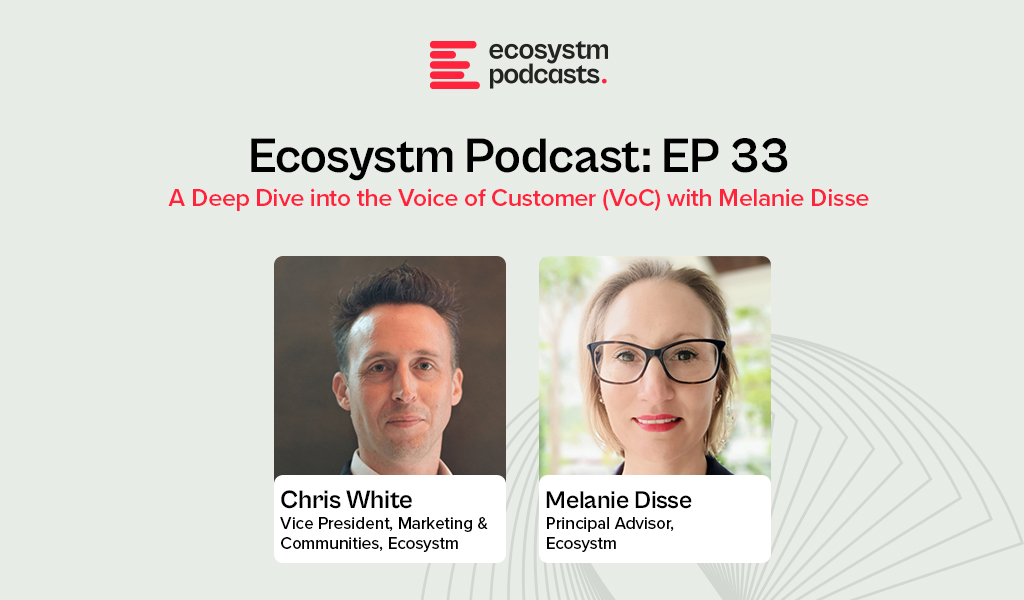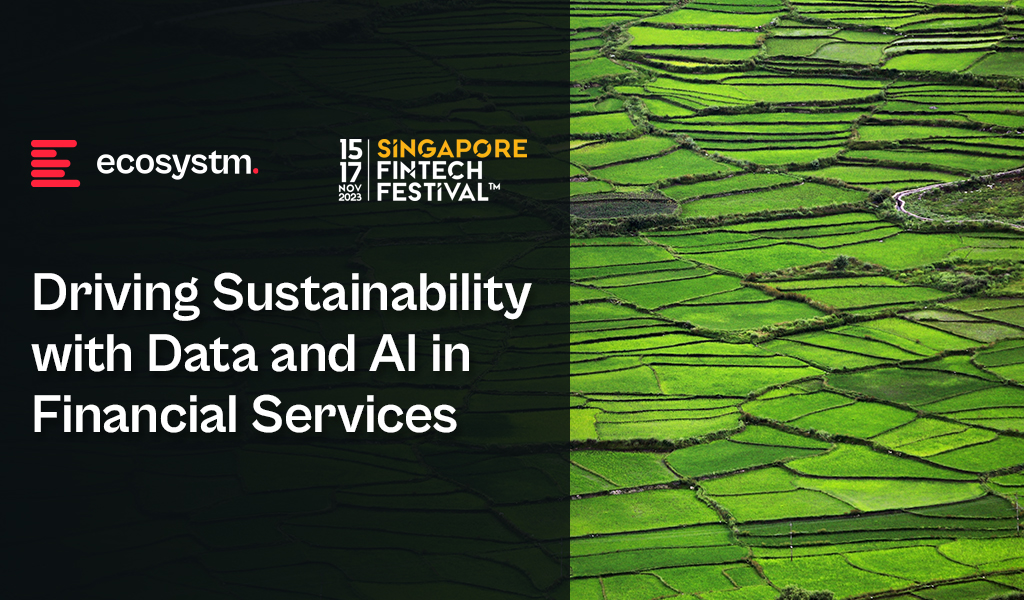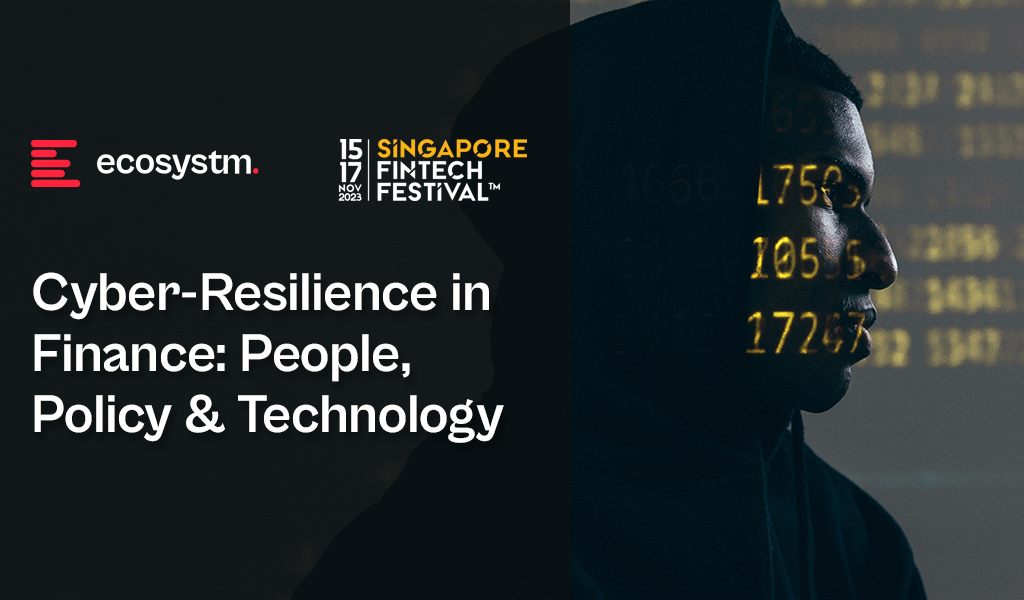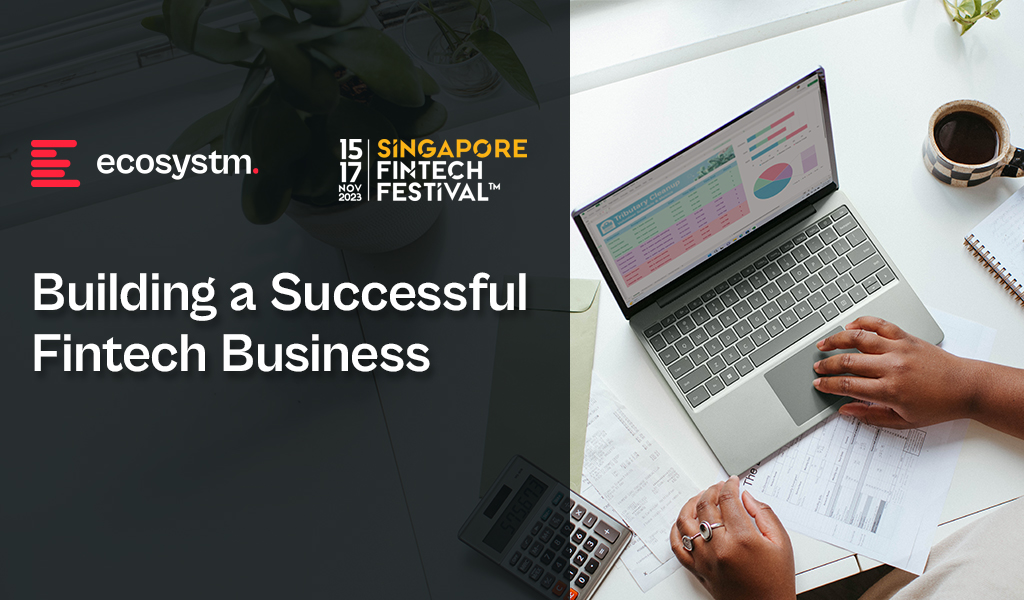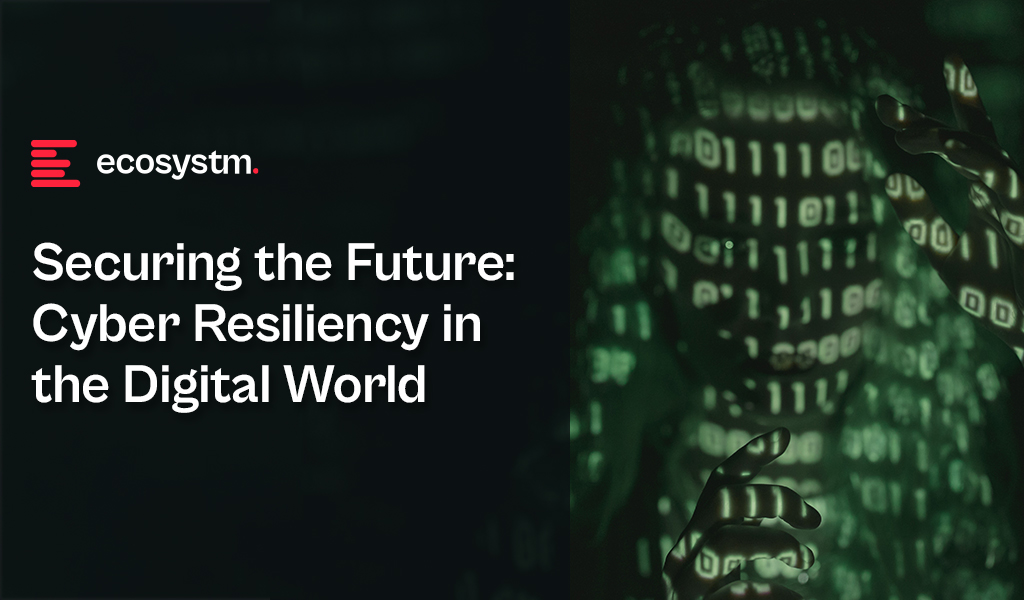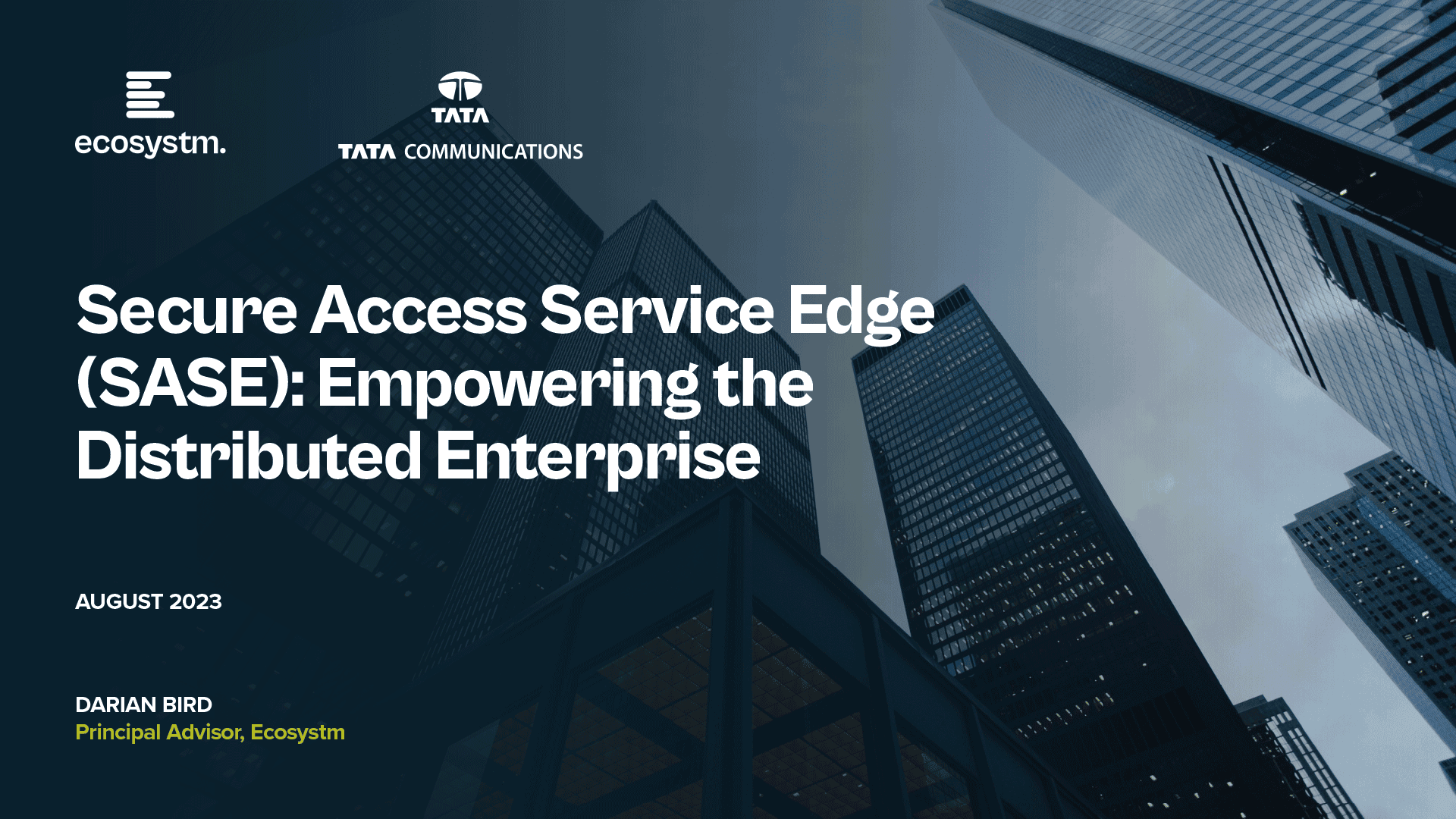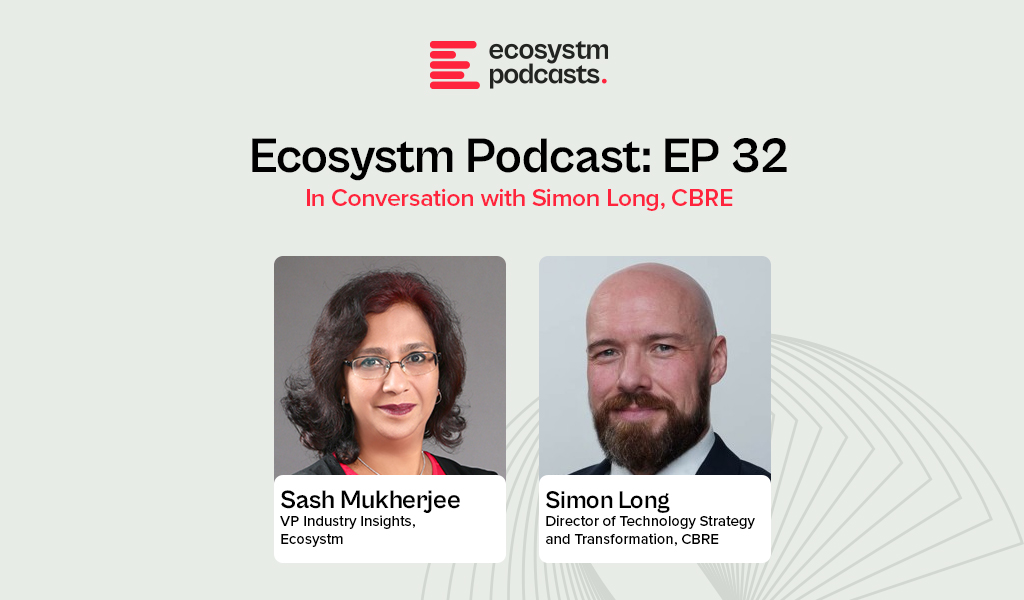Chris White, VP Marketing and Communities at Ecosystm, speaks with Melanie Disse, Principal Advisor, Ecosystm about what she is seeing in the world of Voice of Customer (VoC).
In this conversation, Melanie talks about the pivotal role of data in understanding customers’ requirements, preferences, and pain points; enabling businesses to enhance their overall customer experience, and build stronger connections with their customers.
Melanie also shares insights on the essential tools and methodologies for gathering customer feedback; as well as emerging trends in VoC.
Podcast: Play in new window | Download (Duration: 14:52 — 5.1MB)
Subscribe Spotify | Amazon Music | JioSaavn | Podchaser | RSS | More
Setting and achieving Sustainability goals is complex in BFSI. To be truly sustainable, organisations need to:
- Reduce internal energy consumption and carbon footprint
- Fund the transition to decarbonisation in high emission industries
- Introduce “green” customer products and services
- Monitor carbon data for financed emissions
Data and AI have the potential to assist in achieving these objectives, provided they are used effectively. Here is how.
Download ‘Driving Sustainability with Data and AI in Financial Services’ as a PDF

Ecosystm research reveals a stark reality: 75% of technology leaders in Financial Services anticipate data breaches.
Given the sector’s regulatory environment, data breaches carry substantial financial implications, emphasising the critical importance of giving precedence to cybersecurity. This is compelling a fresh cyber strategy focused on early threat detection and reduction of attack impact.
Read on to find out how tech leaders are building a culture of cyber-resilience, re-evaluating their cyber policies, and adopting technologies that keep them one step ahead of their adversaries.
Download ‘Cyber-Resilience in Finance: People, Policy & Technology’ as a PDF

Fintechs have carved out a niche both in their customer-centric approach and in crafting solutions for underserved communities without access to traditional financial services. Irrespective of their objectives, there is an immense reliance on innovation for lower-cost, personalised, and more convenient services.
However, a staggering 75% of venture-backed fintech startups fail to scale and grow – and this applies to fintechs as well.
Here are the 5 areas that fintechs need to focus on to succeed in a competitive market.
Download ‘Building a Successful Fintech Business’ as a PDF

Cyber threats are growing in volume, intensity, and complexity and are here to stay. Basic endpoint attacks are becoming intricate, multi-stage operations. Cybercriminals are launching highly coordinated and advanced attacks. This evolving threat landscape affects businesses of all sizes, jeopardising data, operations, and finances.
In the face of massive data leaks, costly ransomware payments, and an ever-expanding and complex threat landscape, the need to strengthen digital defences has driven significant advancements in cybersecurity.
Read on to find out how organisations, governments, industry associations and technology providers are evolving ways to combat cybercrime.
Download ‘Securing the Future: Cyber Resiliency in the Digital World’ as a PDF

How can you build your network and form security strategies to become highly distributed,cloud native, and converged in the Hyperconnected era.
This eBook covers the challenges identified by modern, hyperconnected enterprises and how SASE could play a crucial role in addressing challenges for the cloud native, globally distributed enterprises.
Download our eBook titled “SASE Empowering the Distributed Enterprise”

(Clicking on this link will take you to the TATA Communications website where you can download the eBook)

Climate summits have attempted to reach a consensus and firm international agreements on emission reduction strategies. However, countries continue to lag behind in the climate promises – many do not back their ambitious targets with real, measurable steps.
With the UN Climate Change Conference (COP28) on the horizon, the world’s attention is fixed on how the conference can operationalise climate outcomes.
Read on to find out about the pivotal discussions and potential breakthroughs that COP28 holds in the global fight against environmental change.
Download ‘Eyes on COP28: Shaping the Direction of Global Climate Policy’ as a PDF.

In our previous Ecosystm Insights, Ecosystm Principal Advisor, Gerald Mackenzie, highlighted the key drivers for boosting ESG maturity and the need to transition from standalone ESG projects to integrating ESG goals into organisational strategy and operations.
This shift can be difficult, requiring an alignment of ESG objectives with broader strategic aims and using organisational capabilities effectively. The solution involves prioritising essential goals, knitting them into overall business strategy, quantifying success metrics, and establishing incentives and governance for effective execution.
The benefits are proven and significant. Stronger Customer and Employee Value Propositions, better bottom line, improved risk profile, and more attractive enterprise valuations for investors and lenders.
According to Gerald, here are 5 things to keep in mind when starting on an ESG journey.
Download ‘Embedding Sustainability in Corporate Strategy and Operations’ as a PDF

Sash Mukherjee, VP Industry Insights, Ecosystm, talks to Simon Long, Director of Technology Strategy and Transformation, CBRE about how disruptions and innovations are shaping the real estate industry.
Simon offers insights on how data-driven decision-making is becoming pivotal for real estate organisations, allowing them to navigate their course with confidence – accelerating digital workplaces, sustainable construction practices, and innovative operational strategies to the forefront of industry progress.
Podcast: Play in new window | Download (Duration: 14:46 — 5.1MB)
Subscribe Spotify | Amazon Music | JioSaavn | Podchaser | RSS | More


